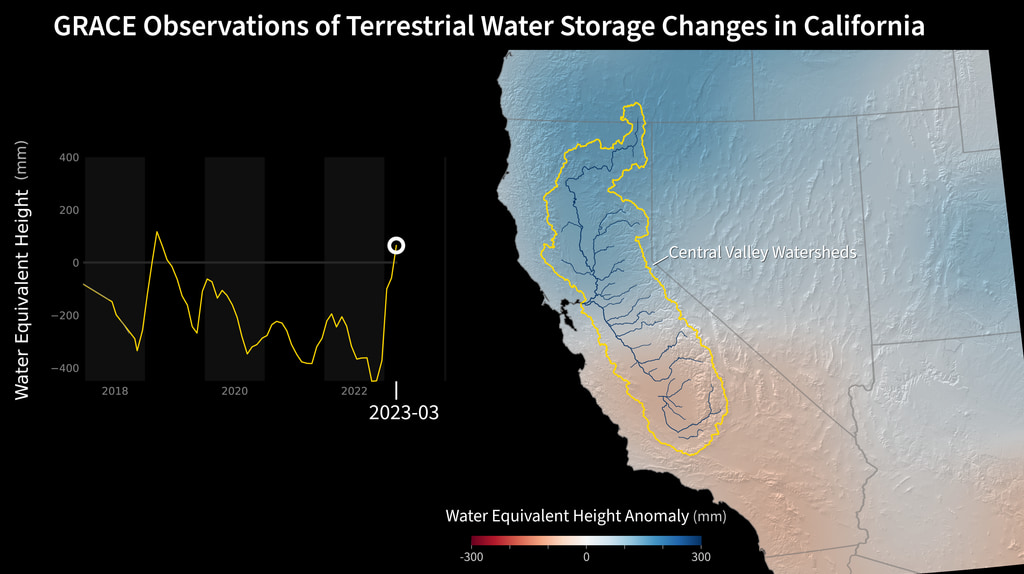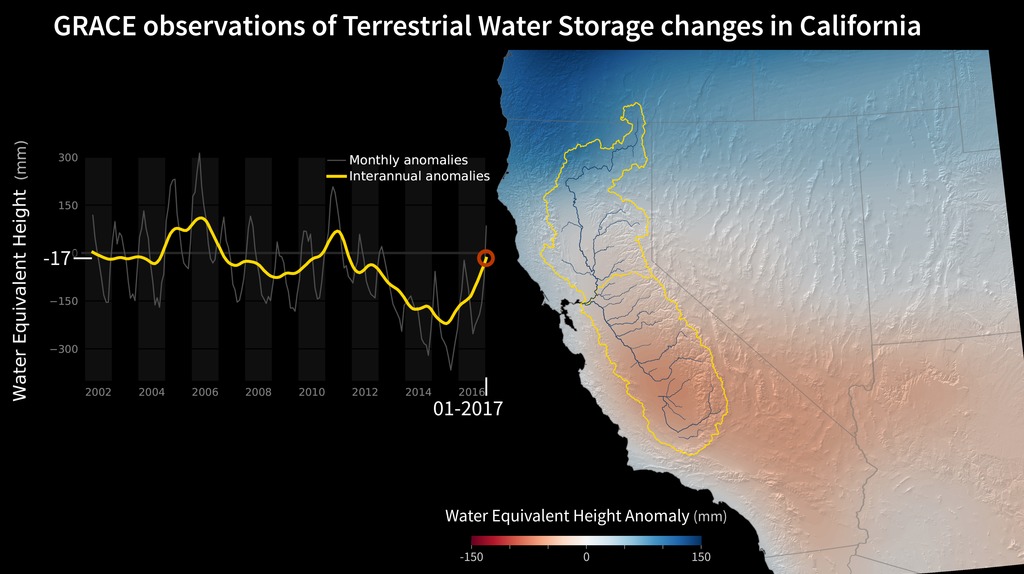A newer version of this visualization is available.
Monitoring California Groundwater 2002-2022
California land water storage, 2002-2022
NASA’s Gravity Recovery and Climate Experiment (GRACE, 2002 - 2017) mission, and its successor GRACE Follow-On (launched in 2018), map month-to-month changes in Earth's gravity field resulting from the movement of mass, such as water, near the surface of the planet. This animation shows how the total amount of water (snow, surface water, soil moisture, and groundwater) varies in space and time, with the passage of dry seasons and wet seasons as well as with flooding, drought, and transport due to water management. Blue colors represent wetter than average conditions (relative to 2004-2010), while red colors represent drier than average conditions. The yellow line in the graph on the left shows the evolution of the long-term inter-annual variations for the area outlined in yellow on the map (note: the average seasonal cycle has been removed).
The Sacramento and San Joaquin River basins are outlined in yellow, and rivers and tributaries are shown as blue lines. The basins include California's Central Valley, the most productive agricultural region in the U.S. Repeated drought conditions and increased water use in California have led to a long-term decline of terrestrial water, interspersed with above-average precipitation periods (e.g., 2015/2016) that have allowed some recovery of the land water storage.
California land water storage, 2002-2022, alternate title
Untitled version of California land water 2002-2022
For More Information
Credits
Please give credit for this item to:
NASA
-
Scientist
- Felix W. Landerer (NASA/JPL CalTech)
-
Animator
Release date
This page was originally published on Tuesday, February 15, 2022.
This page was last updated on Sunday, February 2, 2025 at 12:42 AM EST.
Missions
This page is related to the following missions:Datasets used
-
TWS Anomaly (Terrestrial Water Storage Anomaly) [Gravity Recovery and Climate Experiment (GRACE)]
ID: 889 -
GRACE Follow-On (Terrestrial Water Storage Anomaly) [Gravity Recovery and Climate Experiment (GRACE) Follow-On]
ID: 1078
Note: While we identify the data sets used on this page, we do not store any further details, nor the data sets themselves on our site.

